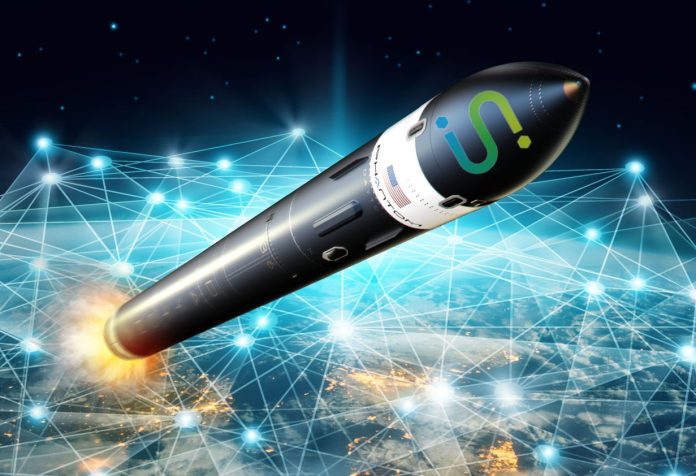IoT connectivity company Ingenu has announced a plan to launch 72 satellites into space to support low-power machine communications for the smart energy, manufacturing, agriculture, cities, logistics, oil and gas, and mining sectors. The San Diego firm has struck a deal with Arizona-based Phantom Space Corporation for the production, manufacturing, and launch of what it is calling the “world’s largest space industrial IoT network”.
Phantom Space Corporation will be responsible for developing the spacecraft buses, system integration, and launch of all 72 spacecraft into low-earth orbit (LEO). The majority of satellites will be carried on its Daytona launch vehicle, set for its maiden voyage in 2023. The new AFNIO satellite constellation will host Ingenu’s industrial IoT payloads, running over its proprietary random phase multiple access (RPMA) technology.
Ingenu’s RPMA technology, ostensibly a rival to the likes of non-cellular LoRaWAN and Sigfox and cellular-based NB-IoT, is a low-power wide-area (LPWA) channel access method for machine-to-machine (M2M) communication. RPMA uses the universal 2.4 GHz band, available as a continuous frequency around the world. It has been deployed in 50 terrestrial networks on five continents over the course of a decade, reckons Ingenu.
Ingenu ran into financial difficulties in 2017, struggling for new investment to expand its US network, having burned through $120 million of venture funds since launch in 2007; investors got cold feet, and founder John Horn exited. Since then, under the stewardship of chairman Babak Razi and chief Alvaro Gazzolo, the company has relaunched with a new platform-as-a-service offer and various contract wins in Asia Pacific.
The relaunch was attended, again, with a ‘2.0’ message about the superiority of its tech, compared with LoRaWAN and Sigfox. The new deal with space transportation outfit Phantom Space Corporation, which has been trailed in conversation since July last year, will allow Ingenu to offer IoT connectivity anywhere on earth, it claims. The initial project, still a couple of years away, will focus on solutions for asset tracking in out-of-reach locations.
Ingenu is to introduce a new RPMA system-on-chip (SoC) module, to enable low-power satellite-to-sensor (LP-S2S) connectivity, which will halve the cost of legacy RPMA modules, it reckons. A statement said: “Ingenu will… develop the world’s largest space industrial IoT network dedicated to connectivity for machines… This project will allow RPMA enabled sensors to communicate directly with the satellites… anywhere in the world.”
It continued: “The new AFNIO constellation will have further reach, global range, and longer-lasting battery life than any existing network. Its robust, best-in-class technology is also future-proof – enabling solution providers to maximize their products’ efficiency and longevity. It was designed to meet the 100 percent data transmission acknowledgment required for each sensor, necessary for serious industrial IoT solutions.”
Alvaro Gazzolo, chief executive at Ingenu, said: “We’ll be able to build and operate a system of satellites that makes it possible to offer people full end-to-end solutions anywhere on earth and complement existing customers’ terrestrial networks. Nothing of the sort has ever been done up until now. The new RPMA communications module… will allow Ingenu and its partners to concentrate on solutions with minimal capital investment and faster time to market.”
Jim Cantrell, co-founder and chief executive at Phantom Space Corporation, said: “We build satellites, launchers, and implement space technology applications because we want to lower the barriers to new commercial applications in space. We are partnering to deliver Ingenu’s value into a space platform where it can have a worldwide impact. This partnership brings us closer to… the disruptive benefits of space technology directly to the consumer.”

